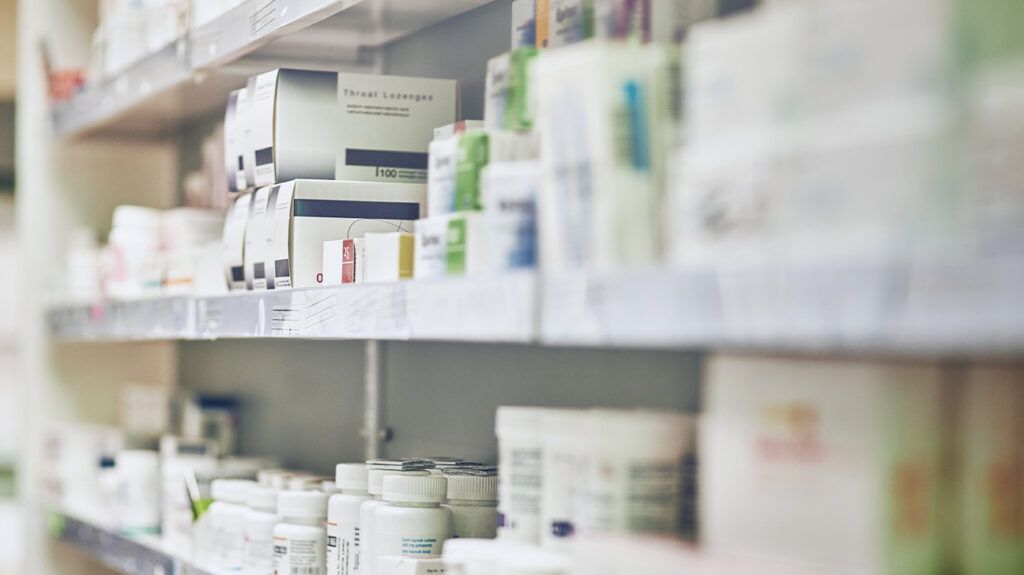 Share on PinterestA new study has found that several types of common medications may have a lasting impact on gut health. PeopleImages/Getty ImagesThe gut microbiome, comprising bacteria, fungi, and yeasts, plays a crucial role in human health.Disruption of the microbiome is associated with numerous chronic health conditions.It has long been known that antibiotics affect the gut microbiome, killing both beneficial and pathogenic bacteria.Now, a study has found that other prescription medications also negatively impact the microbiome, and their effects can last for some years after stopping the medication.
Share on PinterestA new study has found that several types of common medications may have a lasting impact on gut health. PeopleImages/Getty ImagesThe gut microbiome, comprising bacteria, fungi, and yeasts, plays a crucial role in human health.Disruption of the microbiome is associated with numerous chronic health conditions.It has long been known that antibiotics affect the gut microbiome, killing both beneficial and pathogenic bacteria.Now, a study has found that other prescription medications also negatively impact the microbiome, and their effects can last for some years after stopping the medication.
A recent study has found that many prescription medications have a lasting impact on the gut microbiome, which can persist for several years.
The study, published in the American Society for Microbiology’s Journal mSystems, found that, in addition to antibiotics, antidepressants, beta-blockers, stomach acid reducers, and anti-anxiety drugs, these substances could continue to disrupt the microbiome long after use.
Babak Firoozi, MD, board certified gastroenterologist at MemorialCare Orange Coast Medical Center in Fountain Valley, CA, welcomed the study, but urged caution when interpreting the findings:
“The methodology was robust, and convincingly linked changes in gut microbiome to medication uses, but this was not a controlled trial. There are far too many variables that cannot be accounted for, such as environmental factors, diet, geographic location. The most surprising finding is how many classes of drugs appeared to have influence on the gut biome.”
The researchers utilized data from 2,509 adults in the Estonian microbiome cohort, a component of the Estonian biobank — a population-based databank of volunteers in Estonia.
The volunteers, who were ages between 23 and 89 years, provided blood, cheek swab, and stool samples. The researchers then used shotgun metagenomics sequencing on the stool samples to analyze the make-up of their gut microbiomes. A subsample of the cohort — 328 people — provided a second stool sample after a median follow-up period of 4.4 years, which the researchers also analyzed.
They accessed details of participants’ current and historical prescription drug usage from their electronic health records.
At the time of the first sample, participants were using a total of 433 different prescription drugs, and in the five years preceding it, they had used 507 different medications. Just over one-third of the participants (857 people) were taking no medications at the time of the first sample, and those taking medications were using, on average, three different types of medication.
The researchers did not assess the effects of antibiotics at the first time point, so they excluded anyone who had taken antibiotics within 90 days of the first sample, but the second sample was assessed for the effects of antibiotics.
In total, the researchers analyzed the effects of 186 drugs. Of these, 167 affected the microbiome in some way, and 78 showed long-term effects on the composition of the microbiome.
Measurable changes in the microbiome were seen in people who had taken the following medications:
Antibiotics — medications that treat bacterial infections by killing bacteria or stopping them from multiplyingAntidepressants — these increase neurotransmitters in the brain to relieve symptoms of depressionAntipsychotics — medications that treat psychosis associated with some mental health conditions, such as schizophrenia and bipolar disorderBeta-blockers — medications used to treat cardiovascular symptoms, such as angina and high blood pressureBiguanides — metformin, used to treat type 2 diabetesProton pump inhibitors (PPIs), which reduce stomach acid to treat acid reflux, heartburn, and stomach ulcersBenzodiazepines, which are prescribed for anxiety and sleep disorders.
As well as antibiotics, beta-blockers, benzodiazepine derivatives, glucocorticoids, PPIs, biguanides, and antidepressants all had effects on the microbiome that were seen many years after previous drug intake.
The researchers found that the longer people took medications for, and the more medications they took, the greater the effect on the microbiome. Multiple medications appeared to interact and have a greater impact on the microbiome, but for individual drugs, it was benzodiazepines that seemed to have the greatest negative impact.
In their paper, the authors warned:
“Given that human-targeted drugs are often taken continuously throughout life, not for short periods, which is the case for antibiotics, the physiological effects can be even more profound.”
“Our findings highlight that even past drug use can leave a lasting imprint. At the same time, we found that even within the same class of drugs, individual medications can affect the microbiome in very different ways. If two drugs work equally well, doctors may opt for the one that has a smaller impact on the gut microbiome.”
— Elin Οrg, PhD, study co-author, head of the Microbiome Research Group at University of Tartu
Even within drug classes, medications had different effects. For benzodiazepines, which are commonly prescribed anti-anxiety drugs, alprazolam, sold as Xanax, was found to have a much broader impact on the microbiome than diazepam (Valium).
“The noted difference in the effects on the microbiome by alprazolam versus diazepam might be a valuable input for future therapy decisions and warrants further investigation,” the authors noted.
Since the gut microbiome (or microbiota) was discovered in the early 1900s, it has become increasingly evident that the approximately 100 trillion bacteria, fungi, and yeasts that live in the human gut play a key role in health and disease.
A healthy microbiome is a stable community with high diversity of microorganisms and high microbial gene richness that lives in balance with its human host. However, factors such as diet, antibiotics and, age can change the gut microbiome, often adversely affecting health.
Disruption of the microbiome, or dysbiosis, is linked to diseases including inflammatory bowel disease (IBD), obesity, allergic disorders and asthma, Type 2 diabetes, cardiovascular diseases, and autoimmune disorders.
Antibiotics, particularly broad-spectrum antibiotics kill off beneficial bacteria in the gut as well as the bacteria that they are intended to destroy to clear infections.
Other drugs, however, act in different ways, as Firoozi explained:
“In a broad sense, medications such as anti-depressants, beta blockers, and benzodiazepines can affect intestinal motility which in turn likely has an effect on gut bacteria by slowing transit through the intestinal tract. Proton pump inhibitors have long been linked to affecting the gut microbiota mostly through eliminating a key defense against bacterial growth, namely gastric acid.”
He suggested that benzodiazepines might also impact a person’s gut microbiome by changing their eating habits, and diet is closely connected to the health of the microbiome.
While emphasizing that people should follow their doctor’s instructions, Firoozi recommended taking medications only as prescribed and only for as long as needed.
“Particularly with benzodiazepines, long-term use should be strongly discouraged, as it easily leads to dependency and is linked to cognitive decline. For PPI medications, the need to continue the medication should be discussed at least every 2 months, with every effort to try and wean off the medication,” he advised.
He also recommended following a high fiber, low fat diet, minimizing red and processed meats, eating fewer processed foods, and taking regular exercise to promote overall gut health.

